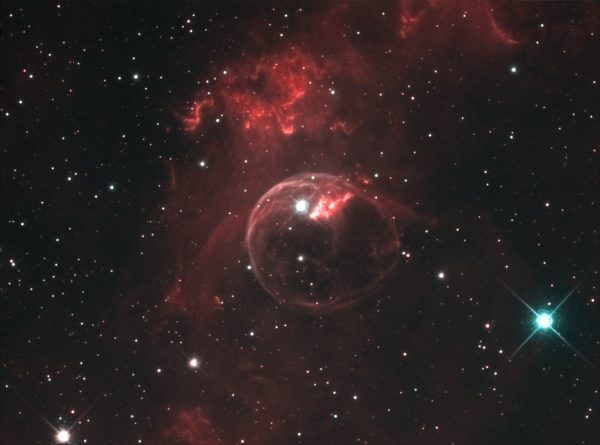We might be living in a bubble.
That’s the conclusion of a new paper published in the journal Physics Letters B, due for print publication April 10. The paper is an attempt to resolve one of the deepest mysteries of modern physics: Why don’t our measurements of the speed of the universe’s expansion make sense? As Live Science has previously reported, we have multiple ways of measuring the Hubble constant, or H0, a number that governs how fast the universe is expanding.
In recent years, as those methods have gotten more precise, they’ve started to produce H0s that dramatically disagree with one another. Lucas Lombriser, a physicist at the University of Geneva in Switzerland and co-author of the new paper, thinks the simplest explanation is that our galaxy sits in a low-density region of the universe — that most of the space we see clearly through our telescopes is part of a giant bubble. And that anomaly, he wrote, is likely messing with our measurements of H0.



